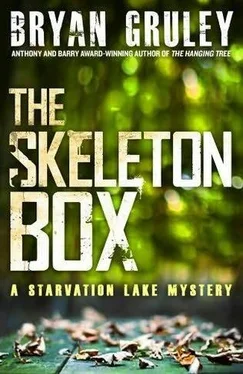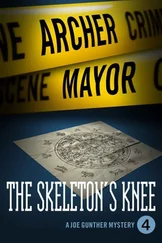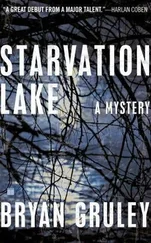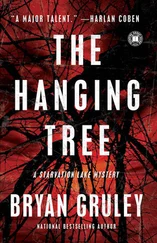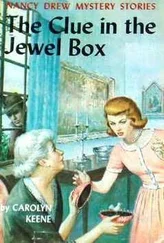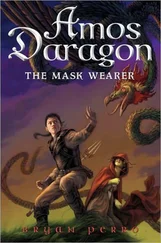Bryan Gruley - The Skeleton Box
Здесь есть возможность читать онлайн «Bryan Gruley - The Skeleton Box» весь текст электронной книги совершенно бесплатно (целиком полную версию без сокращений). В некоторых случаях можно слушать аудио, скачать через торрент в формате fb2 и присутствует краткое содержание. Жанр: Криминальный детектив, на английском языке. Описание произведения, (предисловие) а так же отзывы посетителей доступны на портале библиотеки ЛибКат.
- Название:The Skeleton Box
- Автор:
- Жанр:
- Год:неизвестен
- ISBN:нет данных
- Рейтинг книги:5 / 5. Голосов: 1
-
Избранное:Добавить в избранное
- Отзывы:
-
Ваша оценка:
- 100
- 1
- 2
- 3
- 4
- 5
The Skeleton Box: краткое содержание, описание и аннотация
Предлагаем к чтению аннотацию, описание, краткое содержание или предисловие (зависит от того, что написал сам автор книги «The Skeleton Box»). Если вы не нашли необходимую информацию о книге — напишите в комментариях, мы постараемся отыскать её.
The Skeleton Box — читать онлайн бесплатно полную книгу (весь текст) целиком
Ниже представлен текст книги, разбитый по страницам. Система сохранения места последней прочитанной страницы, позволяет с удобством читать онлайн бесплатно книгу «The Skeleton Box», без необходимости каждый раз заново искать на чём Вы остановились. Поставьте закладку, и сможете в любой момент перейти на страницу, на которой закончили чтение.
Интервал:
Закладка:
OK, I thought. Whistler and I would have to wear gloves and hats in the office to stay warm. Copies would now be fifty cents a page, out of our pockets. At least that’s what I hoped. Nothing worse.
“Let’er rip,” I said.
Fuqua told me as if he was telling me I had some mayo on my cheek.
“The last issue of the Pilot will be published this Friday,” he said.
“Saturday.”
“No. We’re moving it up a day.”
“Now? With all the stuff going on around here?”
“There’s no good time to do this,” Fuqua said.
An image of Darlene kneeling over her dead mother flashed in my brain. “There are some better than others,” I said. “What about the hockey? What if the Rats win and go to the final? What if they win?”
When my Rats team had played in the state final against the Pipefitters in 1981, windows on every house and store and office in town were plastered with Rats team photos that had been printed across two full pages in the Pilot. I was front and center, sitting next to Tatch, our billowy leg pads touching. Even after we lost, people kept those pictures up for months until the tape dried out and peeled away. Then they folded them up and put them in the drawer where they’d saved front pages of the Tigers’ 1968 World Series win and the day Kennedy got shot.
“There was some discussion of publishing into next week,” Fuqua said. “Unfortunately, it’s a business thing. Our printing contract expired at the end of February. They gave us a grace period, which is up Friday. If we go beyond that, we have to renew for six months.”
“So the hell with Starvation, eh?”
Fuqua shifted in his chair. “After some discussion,” he said, “the board calculated that the River Rats were unlikely to beat the Pied Pipers anyway.”
“It’s the Pipefitters. And what the hell do you and the board know about hockey?”
Fuqua pursed his lips. I swiveled away, afraid I’d say something even worse, and punched a key on my computer. I had an e-mail from Joanie. I called it up: great seeing you. call me about whistler
— j
I turned back to Fuqua. “Tell me,” I said. “This difficult decision didn’t have anything to do with a certain consultant charge, did it? Please tell me four hundred and fifty piss-ass little dollars didn’t doom a paper that’s been here since they named the place Starvation.”
“Every factor was considered,” Fuqua said. “Although I will say one or two board members expressed some concern that the charge you mentioned looked like it might be checkbook journalism.”
“You have to be fucking kidding me.”
“I realize you’re upset,” he said. “Which is why I let the language go the first time. Now I’d appreciate a more professional demeanor.”
“My reporter used a consultant to help him get some information. It probably wasn’t penny smart, but he wasn’t whoring us out either. He even offered to pay himself.”
“It wouldn’t change our contractual situation.”
“I see,” I said. “Then I guess we’ll just do our best online. If the Rats win it all, people can still print out the page and put it up. As for the other stuff, I guess maybe you’re right.”
“No, Gus.”
“You just said-”
“No. No online. No anything. The Pilot is shutting down. It’s over. We’re closing the paper as of Friday.”
My stomach turned over. Icy needles of sweat pricked the back of my shoulders. “Hold on,” I said. “This can’t-Philo told me nobody wants to close the paper. He said the board was considering how to rationalize print and online.”
“That’s what the board did,” Fuqua said. He stood. “Philo said you yourself thought it would be a mistake to go online only. Something about antilock brakes.”
“That’s not what I meant.”
“It doesn’t matter. The money’s not there.”
I looked around the room and felt a sudden fondness for the clunky metal desks, the claptrap copier, the bubbling linoleum, the yellowing Pine County map peeling back from the wall, even the buzzing lamps. Fuck the board, I thought. Fuck every one of those fat-asses and the five thousand bucks they got for attending a two-hour meeting where they put a gun to the head of the only newspaper in Pine County. Fuck them and their fat-assed fucking wives and children. I hoped their fucking dogs died.
But I didn’t say it. Instead I sat there feeling a little like I’d felt all those years ago when I let in the goal that gave the Pipefitters the state championship. Now the Pilot would die on my watch as executive editor. I would be left to wonder again, as I had for years after that goal, whether I could have done something differently to make things right.
Fuqua explained that the board had deemed that the Pilot ’s closing would be announced in its final edition, and nothing would be said about it before. I nodded without agreeing. He said a human resources person would call to go over our “separation options.” By then I was too stunned to speak. I sat silent until Fuqua finished and asked me if I was all right. “I guess I’ll have to be,” I said, and he asked me if I would speak with Luke Whistler and I said I would. Then he told me he was sorry, he had to get to his United Way meeting, and I heard the back door close as he went out to his Volvo. I was facing my final deadline.
I dropped the rest of the sandwich in the trash. I threw my coat on and hurried out to Soupy’s truck and pulled it onto South Street and took two lefts to Main and pulled up in front of Enright’s, honking.
I forgot about calling Joanie.
“Jesus, Trap, it reeks in here,” Soupy said. “What the hell did we come here for?”
“Sentimental,” I said. “Want to get a last look before you sell it.”
I hadn’t been in Soupy’s mother’s house since an Easter dinner she had hosted when I was still living in Detroit. She made a leg of lamb with buttermilk mashed potatoes. That was the good part. The rest was Soupy’s dad getting plastered and lighting into Mrs. Campbell for spending too much on the dinner. His marina wasn’t doing well but, like his son, Angus Campbell was not a man inclined to find fault with himself. Soupy, his belly full of Blue Ribbons, had stepped in and soon the two of them were outside, threatening to kill each other while Mrs. Campbell and my mother yelled at them to grow up. Soupy threw one punch. Angus collapsed, unconscious, facedown in one of his own grimy boot prints in the snow. By the time we had carried him back inside, Mrs. Campbell and Mom had taken my mother’s car and gone. The first thing Angus Campbell said when he woke up was, “Goddamn broads.”
Now Soupy and I stood in the little dining room where we had sat down to that meal. The table had vanished beneath mounds of moldy magazines and decaying Pilots, kitchen appliances, a rusting empty birdcage, an old Electrolux vacuum cleaner in a duct-taped cardboard box. The floors were covered. There were boxes and brown-paper bags and milk crates and plastic bags, all filled to the top with lamps and books and vases and coffee mugs. There were rolls and rolls of wrapping paper, mud-caked flowerpots filled with spoons and forks, a soiled cat-litter box, at least a dozen half-eaten apples, shriveled and brown. I nudged a box with the toe of a boot and heard glass clink against glass.
“What a mess,” I said.
“Told you,” Soupy said. He plucked a can of beer off the six-pack he was carrying and handed it to me. “No wonder it hasn’t sold-yet.” I didn’t bother to suggest that Soupy clean the place up before showing it; the archdiocese probably wouldn’t care. I put the beer to my mouth and drew in the smell to mask the pervasive odor of cat litter mixed with sodden paper.
Soupy’s parents had separated in their final years. Mrs. Campbell stayed in the house in the woods, and Mr. Campbell usually slept on a cot at the marina when he wasn’t ushering a woman into a room at the Hill-Top Motel. One night, Angus had come to the house, lit, looking for a mounted set of deer antlers to settle a bar bet. Mrs. Campbell took the antlers and locked herself in a bathroom. The police had to be called. Mrs. Campbell had the locks changed. She accelerated her hoarding of things. Every single thing, apparently. The antlers were now propped atop a stained lampshade.
Читать дальшеИнтервал:
Закладка:
Похожие книги на «The Skeleton Box»
Представляем Вашему вниманию похожие книги на «The Skeleton Box» списком для выбора. Мы отобрали схожую по названию и смыслу литературу в надежде предоставить читателям больше вариантов отыскать новые, интересные, ещё непрочитанные произведения.
Обсуждение, отзывы о книге «The Skeleton Box» и просто собственные мнения читателей. Оставьте ваши комментарии, напишите, что Вы думаете о произведении, его смысле или главных героях. Укажите что конкретно понравилось, а что нет, и почему Вы так считаете.
